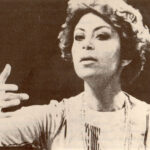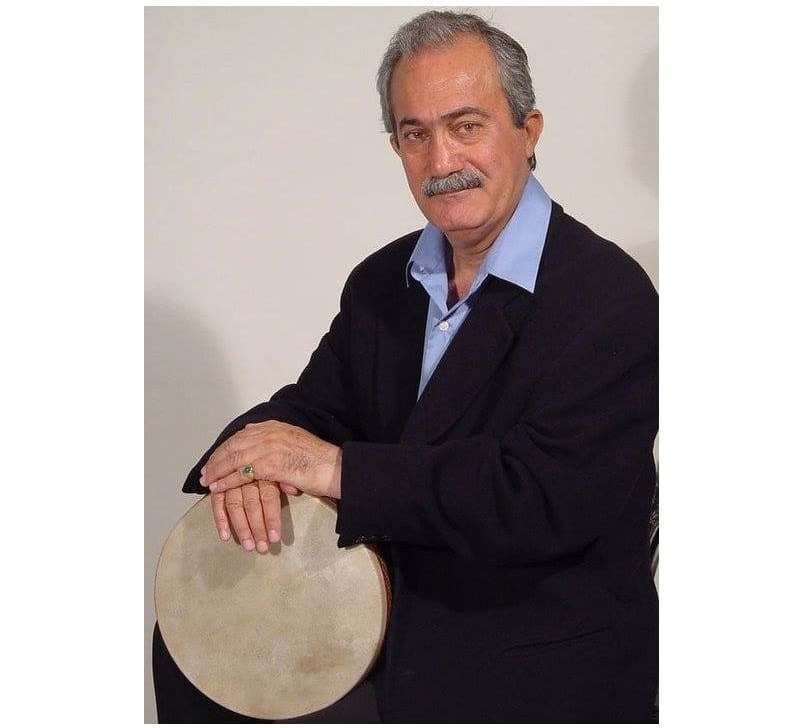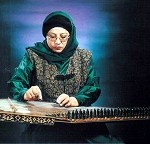(A review of the “So Faraway” album; Tar and Tonbak duet; Siavash Imani, Pedram Khavarzmini)
Author Archives: Saeed Yaghoubian
Illusion or Ingenuity?
Mohsen Renani in the preface of his book entitled “The Political Economy of nuclear conflict; an introduction to traversing the civilizations” writes:
Latest posts
- Nasser Masoudi: The Voice of Gilan and a Legacy of Iranian Music
- Farhad Poupel: The Voice of the Shahnameh in the Orchestras Around the World
- Five Major Myths About Mozart’s Life
- Bahma Rajabi Passed Away!
- Reza Vohdani; Unveiling unpublished works, preservation of Iranian classical music
- Ahmad Pejman Passed Away!
- Timeless or Timely: The Role of Historical Context in Defining Artistic Value
- Leading the Charge in Censorship
- The Legacy of Khosrow Jafarzadeh
- Transition to Enlightenment: Six Lectures on Mozart’s String Quartets (4)
- Fereydoun Shahbazian, An Iranian Musical Icon Passed Away
- Transition to Enlightenment: Six Lectures on Mozart’s String Quartets (3)
From Past Days…

“I Will Never Perform Just for Women!”: Golnoush Khaleghi Passes Away in Exile
Golnoush Khaleghi, first Persian woman conductor and daughter of legendary composer Rouhollah Khaleghi, passed away on February 14. She was 80. Golnoush Khaleghi was the conductor of the NIRT (National Iranian Radio & Television) Choir in the 1970s. Shortly after the 1979 Islamic Revolution Ms. Khaleghi moved to the United States and founded the Rouhollah…
Read More

The Mystery of Messiah
Antonio Stradivari (1644 – 18 December 1737) was an Italian luthier and is considered the most significant and greatest artisan in this field.

Non-profit “Microtona” Project Released
Microtona is a sixty-eight-page Booklet with personal comments by the contributing microtonal artists. The booklet also includes a DVD which consists of 8 original video tracks and 9 original audio tracks. The project is an international one featuring unpublished pieces by composers from Iran, Japan, U.S., France, Austria, Germany and Belgium.

Bahma Rajabi Passed Away!
Bahman Rajabi, the renowned tonbak (Persian goblet drum) player and educator, passed away at his home at the age of 86 due to a heart condition. He was the founder of a distinctive school of tonbak playing, and his teaching methods have been widely used by instructors of the instrument for decades..

Qanun, a feminized instrument?
In the world music culture, there are instruments which were traditionally associated with a certain gender. It remains disputable to what extent these gender-based perceptions have been logical and scientific. For example, as playing wind instruments need more breath strength and the public opinion believe that men have stronger breath compared to women, these instruments are predominantly a male domain. Harp is also considered a female instrument as the public opinion believe that women have finer fingers and can therefore better perform nuances and delicate techniques on the instrument.

Women and the Music Environment in Iran
The life territory of the female-male relations in the Iranian cultural context is basically a domestic territory and not a social-living one in the labour and leisure domains. To prove this, it only suffices to consider the Iranian men’s viewpoints about women. For the Iranian men, there are three perspectives regarding the women: mother, sister and wife. Mother represents the emotional territory; sister represents the logical territory at home while wife represents the sexual territory.

Rouhollah Khaleghi Artistic Center established in Washington DC
Golnoush Khaleghi (1941-2021), a Washington-based Persian musician and the daughter of the contemporary Persian (Iranian) composer and theoretician Rouhollah Khaleghi (1906-1965) founded a musical center called RKAC to keep the name and the work of her father alive.

Ennio Morricone’s music for Quentin Tarantino’s The Hateful Eight
After watching Quentin Tarantino’s latest movie, The Hateful Eight, everyone was excited by its novel music besides the beautiful scenes of blood and guts.
The Hateful Eight is the first collaboration between the world-famous film music composer, Ennio Morricone, and Quentin Tarantino as a famous director.

New Technique for Playing Classical Guitar (I)
Joint application of the two techniques of “Lip” and “Nose” could be effectively applied for hearing and playing far-away intervals, by the Classical Guitar. Before this, a Classical Guitar player had to waive playing intervals not possible with the left hand, and had to replace or eliminate some notes, making it possible to play such intervals; specifically the capability of the left hand of the musician, was also a factor in such a selection. These methods are hereby illustrated by photographs and a video-file, in order to provide optimum comprehension of applying these methods, invented by the author; specifically the “Lip” technique, which is considered to be a more significant technique, emphasized by the author.

Music education in third-world countries
Music education in third-world countries is facing many problems that limit access to it and it’s full of challenges. These rising and falling obstacles are made of the socioeconomic, cultural educational systems, etc.